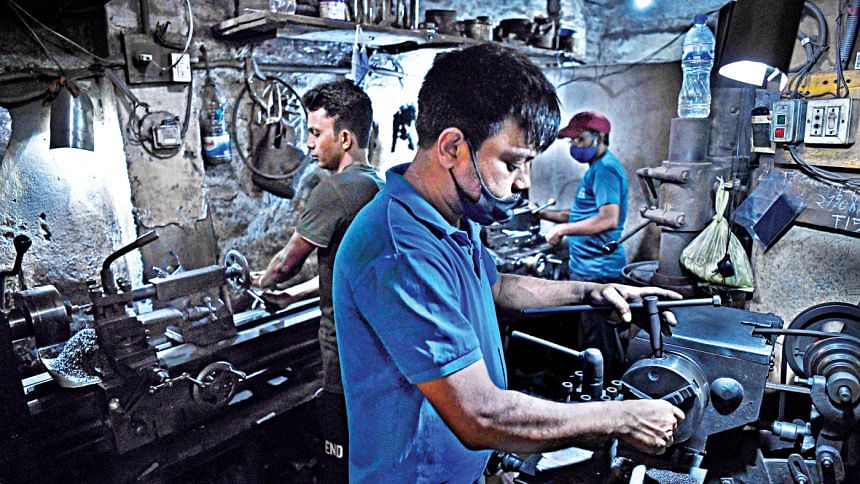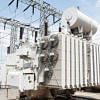Small industries pressured by higher costs

The government's decision to increase the power tariff twice last month has created undue pressure on small industries that are unable to keep up with rapidly rising production costs, according to various businesspeople.
Customers will now end up bearing the brunt of the higher costs of goods sold, they said.
Small companies usually lack the additional investment capacity needed to face the burden of higher input costs and subsequently become less competitive.
On January 12, it was announced that the retail price of electricity would be increased by 5 per cent effective from January 1.
Just 19 days after the announcement, the retail price of electricity was yesterday hiked by another 5 per cent effective from today.
Along with this, wholesale electricity prices have also been increased by 8 per cent.
Small companies usually lack the additional investment capacity needed to face the burden of higher input costs and subsequently become less competitive
Abdur Razzak, president of the Bangladesh Engineering Industry Owners Association (BEIOA), said frequent price hikes for power create a burden for small capital-based businesses, such as those in the light engineering sector.
"Unlike corporate houses, we do not have capacity to tackle the situation when utility charges suddenly increase," he added.
As such, he considers the notification issued by the power division last night as an unprecedented and sad development for the light engineering sector.
According to the BEIOA chief, some investors in the light engineering sector are leaving the business as they do not have the capacity to survive amid the increasing cost of doing business.
"It is really a big pressure for the light engineering sector to operate amid the continuous increase of utility tariffs along with US dollar price hike that led to higher raw material costs," he said, adding that even a 5 per cent increase in power tariff puts tremendous pressure on their shoulders.
Besides, he said investors in this sector do not have the additional financial capacity to survive in situations such as the ongoing crisis.
Razzak then alleged that the government is increasing utility tariffs to reduce the subsidies provided in order to fulfil the conditions set by multilateral lenders, including the International Monetary Fund.
Md Sameer Sattar, president of the Dhaka Chamber of Commerce and Industry, said exporters will lose their competitiveness in the global market while local consumers will also suffer for an increase in the price of products sold.
He fears that the continuous increase of product prices will increase inflation further.
He then stressed the need for cooperation between the government and private sector to find doable solutions to get rid of this challenge for low-income people.
"Small businesses will face severe challenges as they do not have access to finance and lack efficiency," he said, adding that the government should consider giving benefits to help them survive the situation.
Md Shahidullah, secretary general of the Bangladesh Steel Manufacturers Association, said frequent increase of utility prices result in commercial adjustments that automatically increase the price of products.
Ultimately, the pressure falls on consumers while also increasing the cost of development projects under the Annul Development Programme.
"As we manufacturers will be compelled to adjust our prices in line with the higher cost of production, demand will decrease immediately, which is practical market behaviour," he added.
According to Shahidullah, sales of steel have already dropped by around 20-25 per cent over the last five-six months while mills are running below their production capacity due to the lack of raw materials.
Manufacturers have been compelled to reduce imports of scrap steel as there is a restriction in opening letters of credit for non-essential goods.
Shahidullah then said the government is always the gainer when it comes to an increase in product prices as its tax revenue grows as a result.
Selim H Rahman, chairman and managing director of Hatil Furniture, expressed concerns about how they would have to adjust their prices due to the frequent increase of power price.
There is no alternative than to increase the price of products to adjust with the higher production cost, which will be borne by consumers, he added.
Rahman went on to say that investors do not aim to increase product prices as it has a negative impact on consumers behaviour.
Consumers want to purchase quality products at reasonable prices, which is a really tough ask given the current circumstances.
So, the sales volume will decline as customers will postpone purchasing products or search for cheaper alternatives.
"Ultimately, both investors and consumers become losers in this situation," he said.
Debasish Singha, head of export at Danish Biscuit, said the local biscuit industry will lose its competitiveness in the international market as manufacturers cannot ask for higher prices despite the rise in production costs.
"So, the profit margin will fall to 7 per cent from 10 per cent in the international market," he added.
Faruque Hassan, president of the Bangladesh Garment Manufacturers and Exporters Association, said most local garment exporters procure raw materials from the domestic market and so, any increase in the price of power will affect their overall production cost.
Also, the cost of living will also increase, he added.
Hassan then said the government could have hiked the price of electricity in staggered way so that manufacturers could adjust their costs gradually.

 For all latest news, follow The Daily Star's Google News channel.
For all latest news, follow The Daily Star's Google News channel. 








Comments